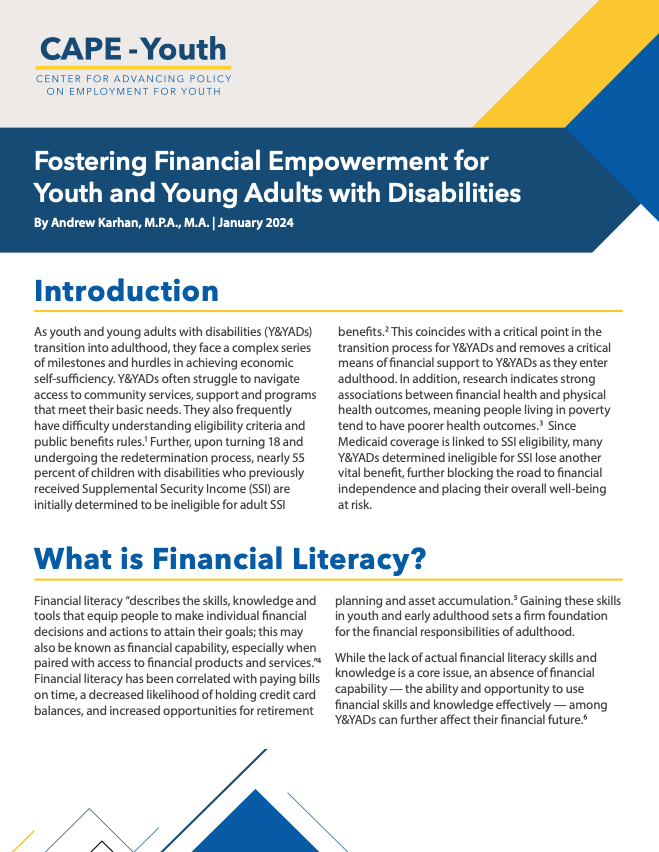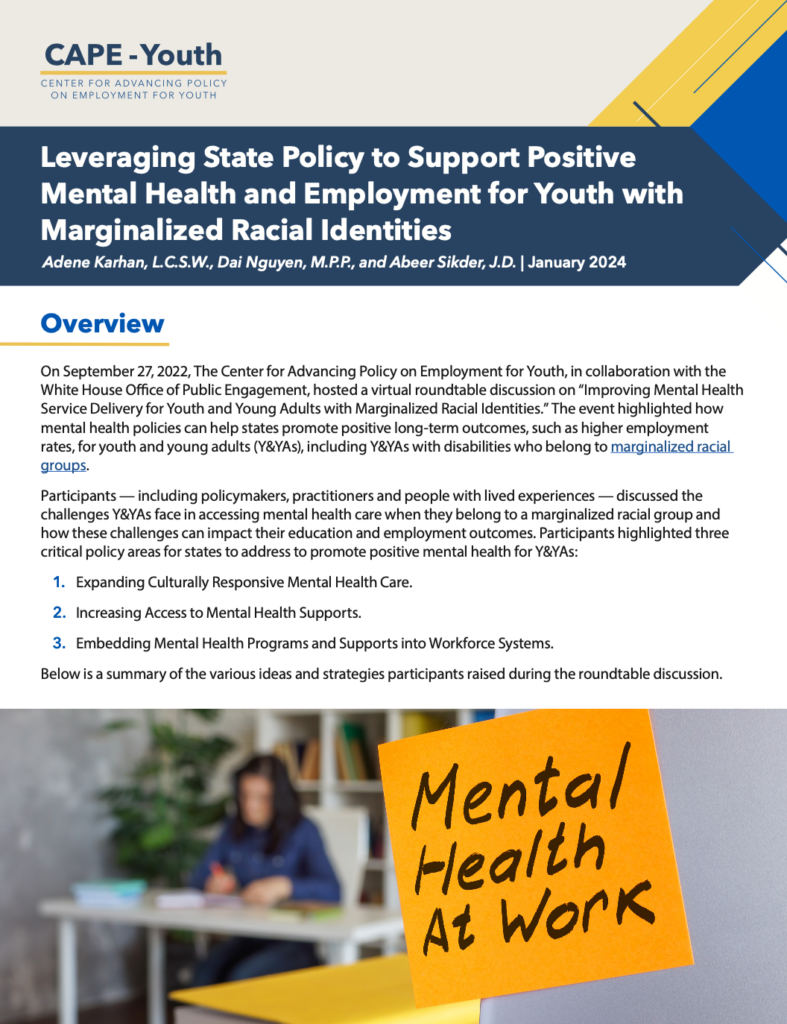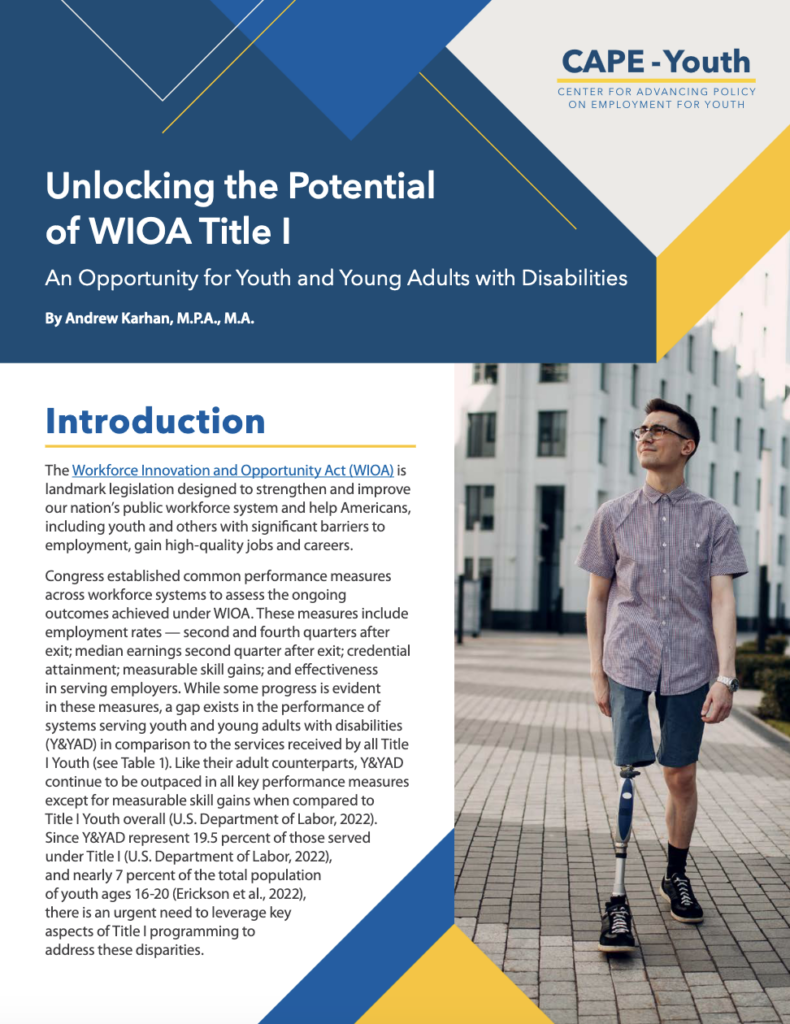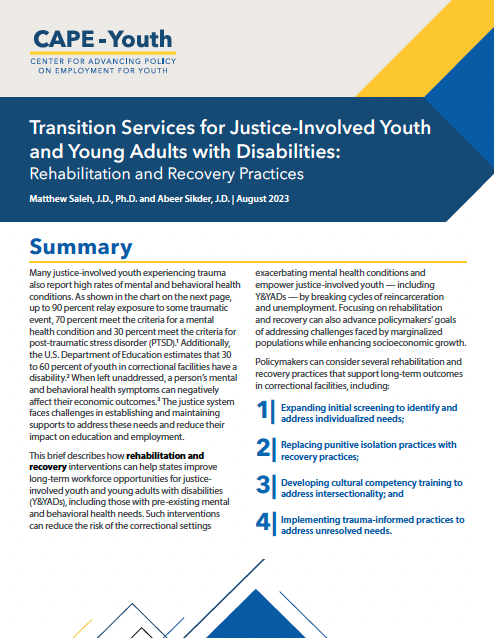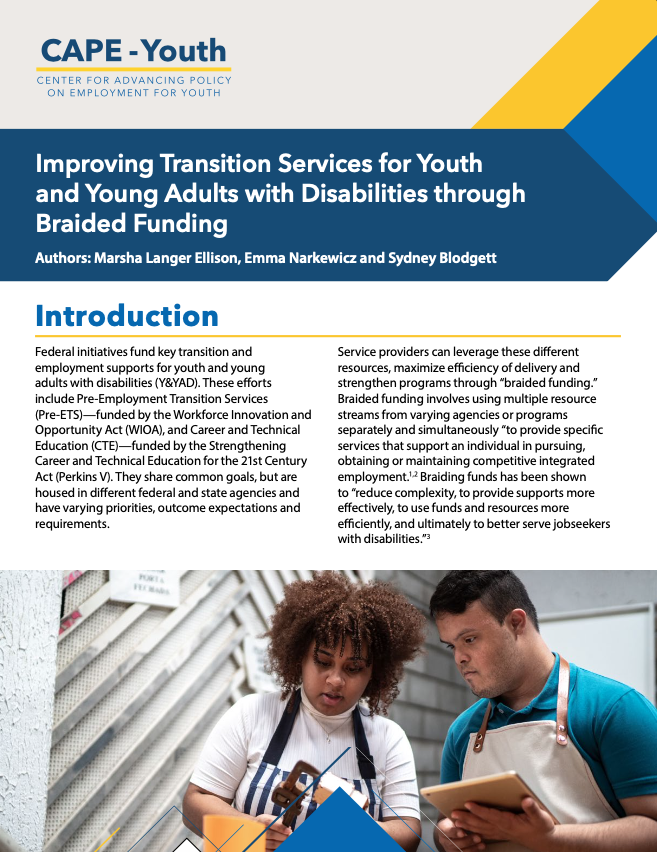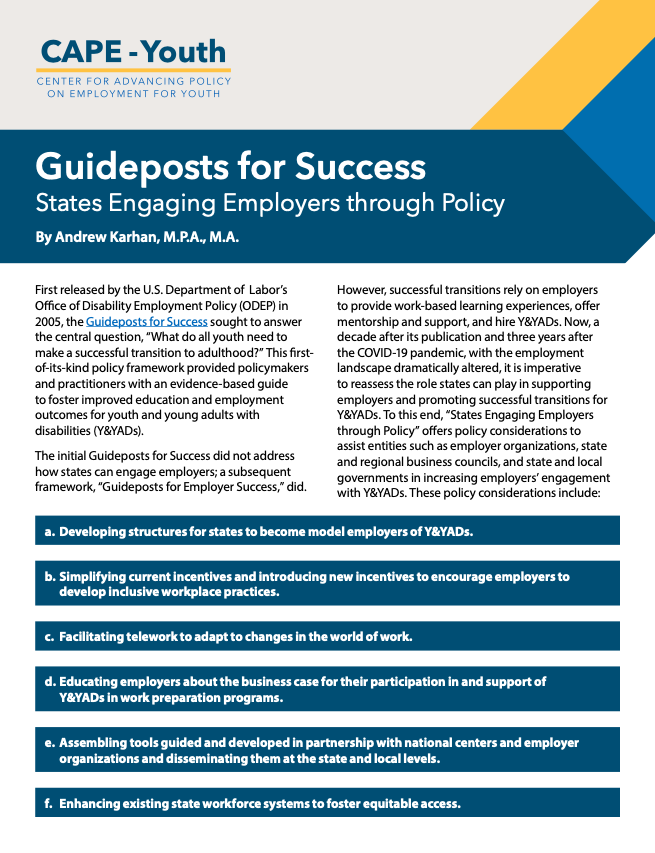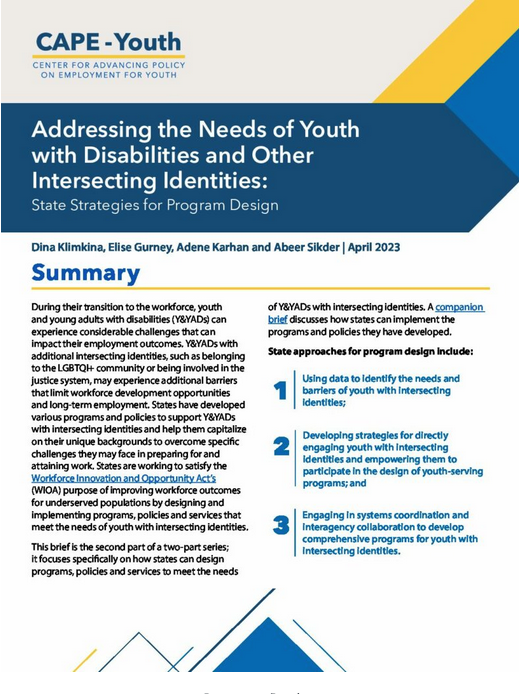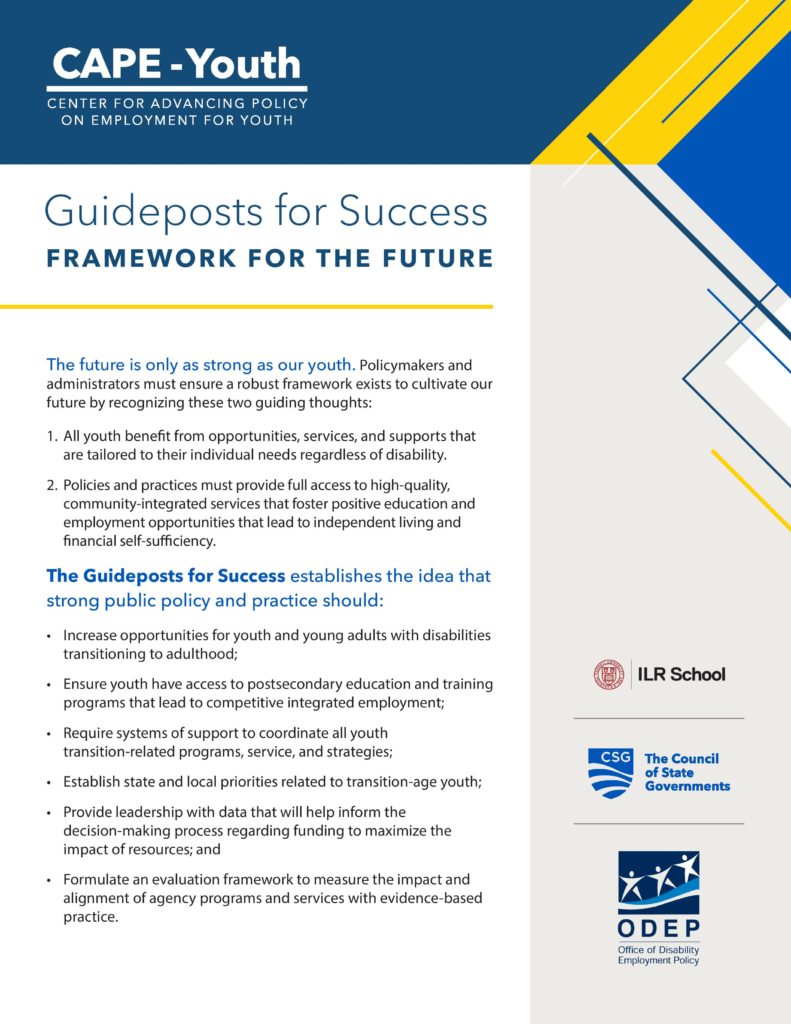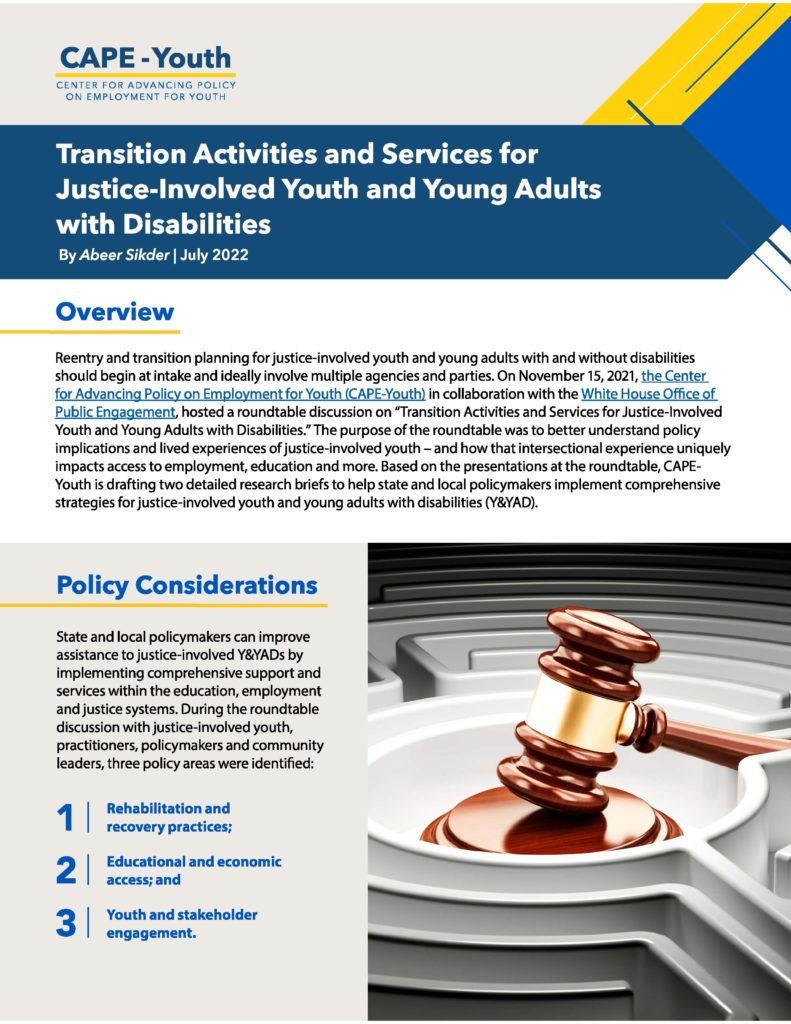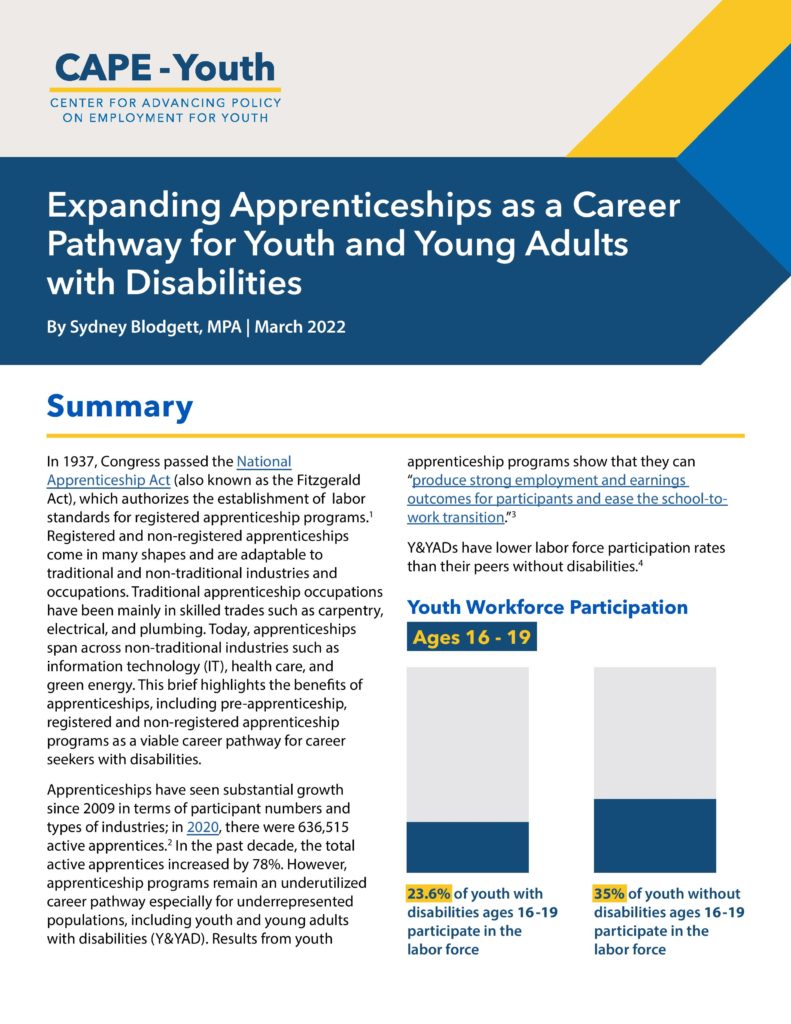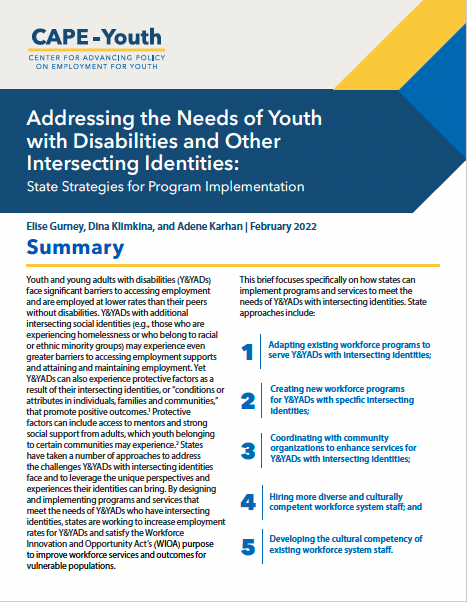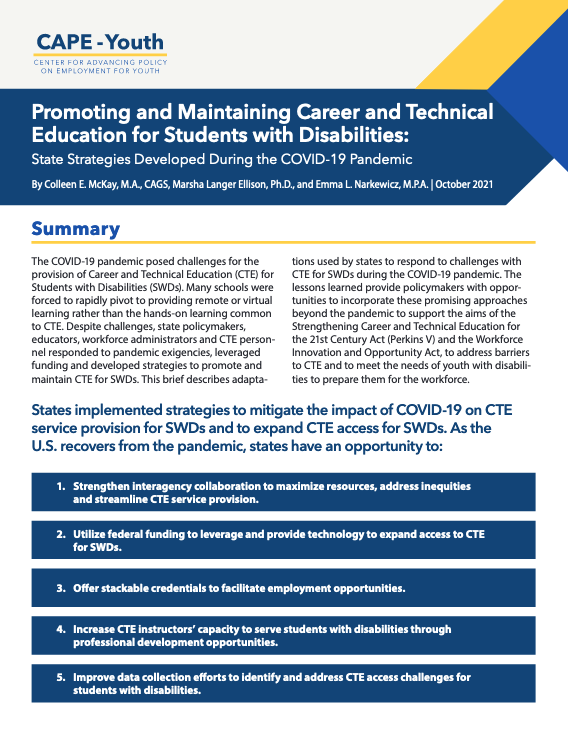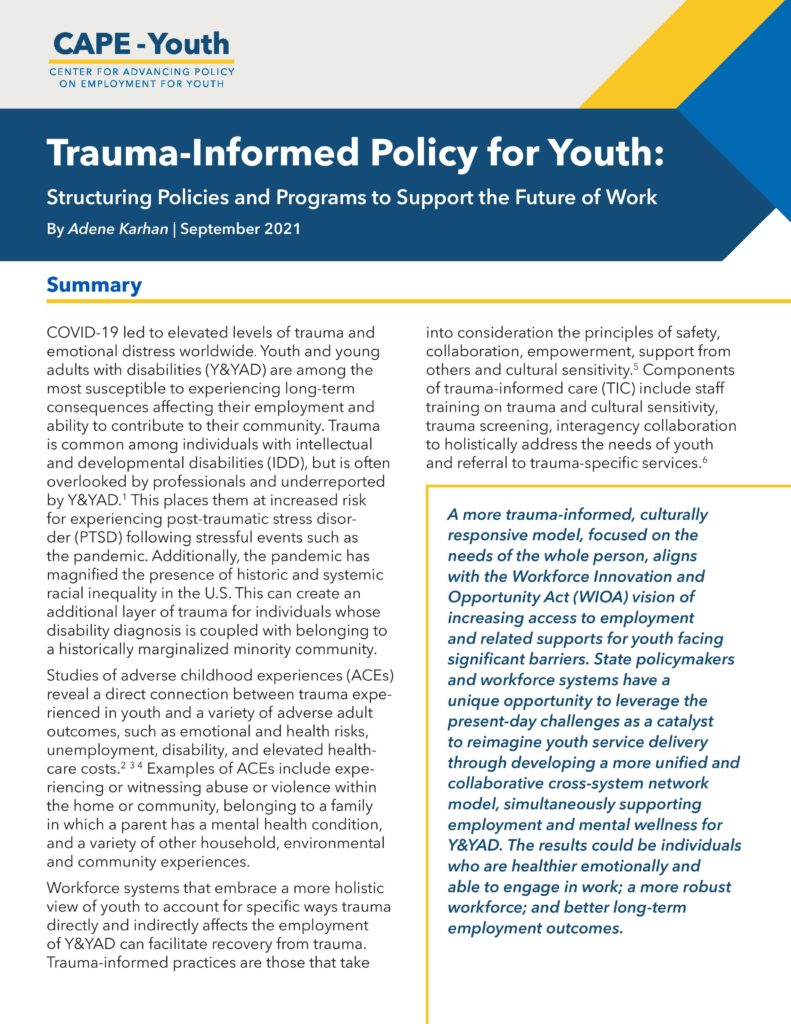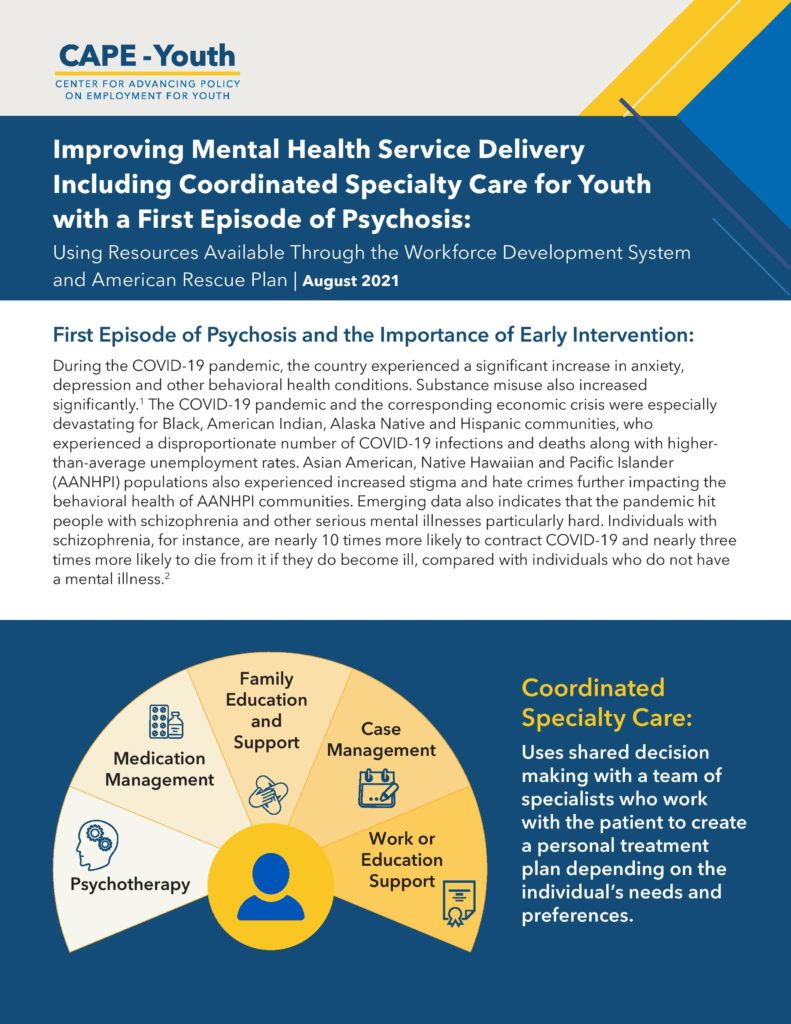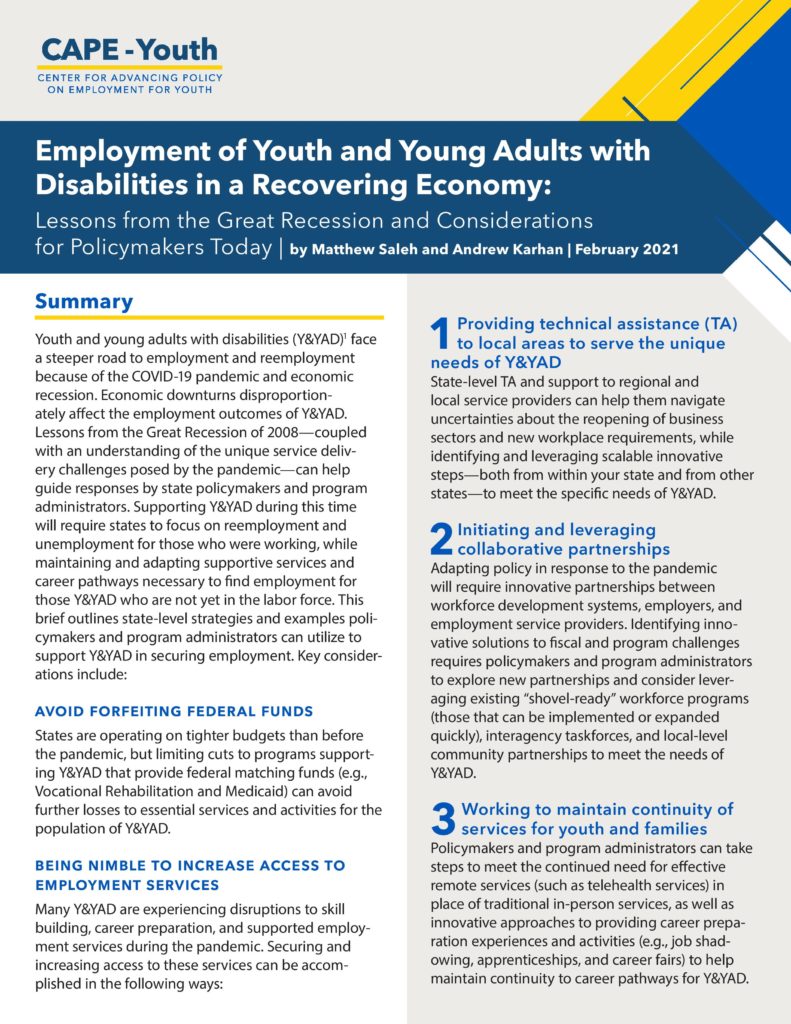Policy Briefs
CAPE-Youth has produced a number of policy briefs on key topic areas, to guide state policymakers in better supporting youth and young adults with disabilities in their transitions to employment and/or post-secondary education. These include:
This brief provides policy considerations that help Y&YADs and their families foster economic self-sufficiency through financial literacy and independence. These strategies can reduce financial pressures for Y&YADs as they transition to employment and adulthood.
This document provides policy considerations for improving mental health service delivery for youth with marginalized racial identities through cultural responsiveness, health care access and workforce supports. These considerations were drawn from a virtual roundtable hosted in collaboration with the White House Office of Public Engagement.
This brief outlines how policymakers and workforce practitioners can enhance their states’ efforts in implementing Workforce Innovation and Opportunity Act (WIOA) Title I programs and services to better serve youth and young adults with disabilities.
This brief describes how rehabilitation and recovery interventions can help states improve long-term workforce opportunities for justice-involved Y&YADs, including youth with pre-existing mental and behavioral health needs.
Federal initiatives fund key transition and employment supports for youth and young
adults with disabilities (Y&YAD). These efforts include Pre-Employment Transition Services (Pre-ETS)—funded by the Workforce Innovation and Opportunity Act (WIOA), and Career and Technical Education (CTE)—funded by the Strengthening Career and Technical Education for the 21st Century Act (Perkins V). They share common goals, but are housed in different federal and state agencies and have varying priorities, outcome expectations and requirements.
First released by the U.S. Department of Labor’s Office of Disability Employment Policy (ODEP) in 2005, the Guideposts for Success sought to answer the central question, “What do all youth need to make a successful transition to adulthood?” This first-of-its-kind policy framework provided policymakers and practitioners with an evidence-based guide to foster improved education and employment outcomes for youth and young adults with disabilities (Y&YADs).
This brief is the second part of a two-part series; it focuses specifically on how states can design programs, policies and services to meet the needs of Y&YADs with intersecting identities. A companion brief discusses how states can implement the programs and policies they have developed.
This document outlines five evidence-based activities that contribute to better transition incomes for Y&YADs. It therefore serves as a framework for policymakers and practitioners to consider in developing policies and programs that support Y&YADs in their transitions to employment or post-secondary education.
This document provides policy considerations for improving assistance to justice-involved Y&YADs by implementing comprehensive support and services within the education, employment and justice systems. These considerations were developed based on a roundtable hosted by the White House Office of Public Engagement.
This brief provides state strategies to expand inclusive apprenticeships as a way to increase labor force participation rates and lower unemployment rates for Y&YADs. By creating and fostering accessible and inclusive apprenticeships, states can increase opportunities for Y&YADs and encourage economic growth.
This brief discusses how states can implement programs to meet the unique needs, and leverage the unique strengths, of Y&YADs who have other intersecting identities (e.g., who belong to a racial minority group or who have involvement with the justice system).
This brief describes adaptations used by states to respond to challenges that students with disabilities face in participating in and completing career and technical education (CTE) in general and as a result of the COVID-19 pandemic.
This brief outlines how states can implement trauma-informed practices into their workforce and other youth-serving systems to facilitate the recovery of youth and young adults with disabilities from trauma that they experience (including as a result of the COVID-19 pandemic) and to mitigate the effects of that trauma on their employment outcomes.
This brief indicates how elements of coordinated specialty care service delivery, including supported employment and education, can be funded using traditional sources and alternative options to support youth experiencing a first episode of psychosis and contribute to their long-term success (including around employment).
This brief outlines state-level strategies policymakers and program administrators can utilize to support youth and young adults with disabilities in securing employment and reemployment throughout and following the COVID-19 economic recession, including capitalizing on federal funds and increasing access to employment services.

